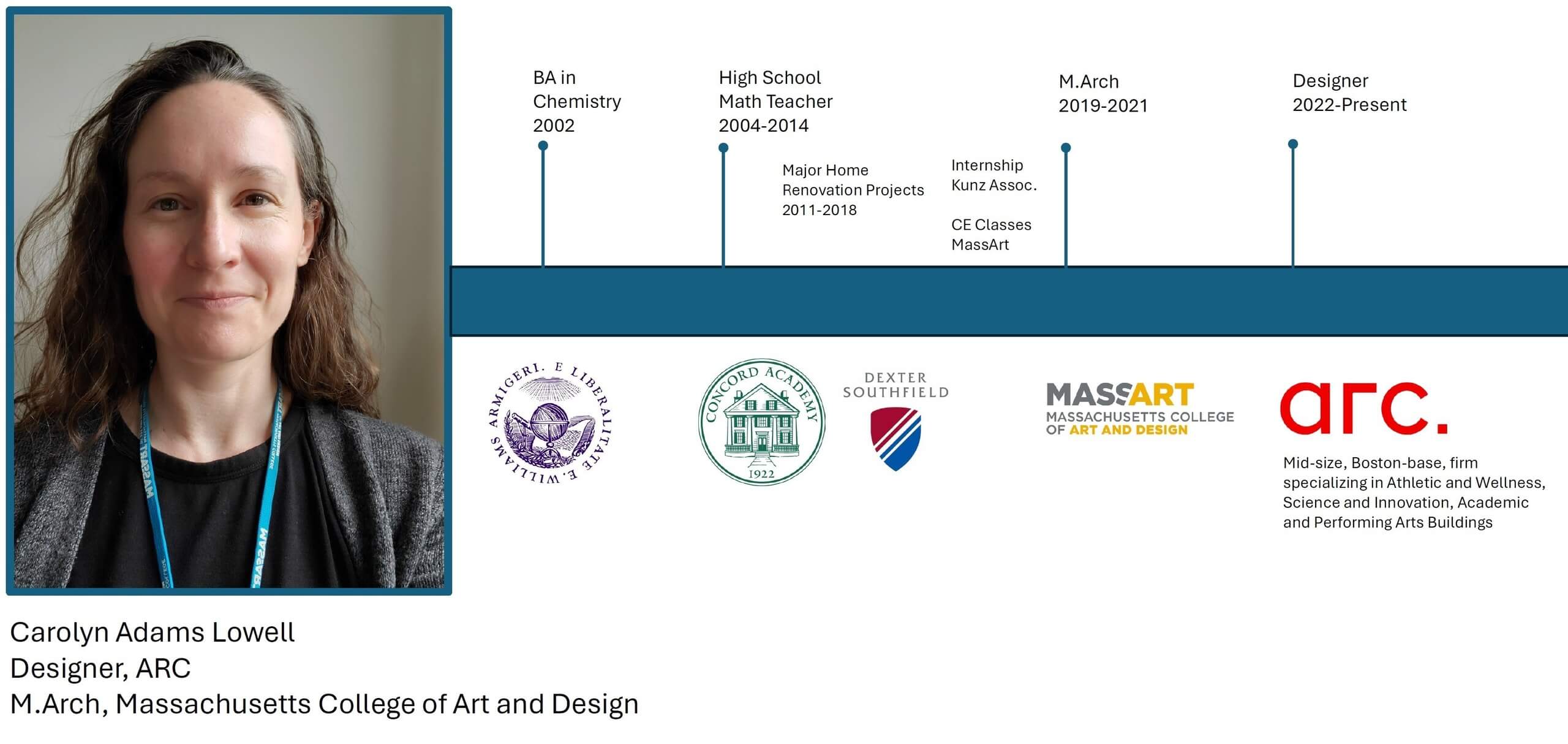ARE Panel – Navigating the Journey to Architectural Certification
One of our responsibilities to the field of architecture is to mentor the next generation. Even designers only a few years into their careers, like myself, have opportunities to pass on lessons learned to their peers. So when the Head of the Architecture department at my alma mater Mass Art reached out to ask if I would speak on a panel about my experiences taking the Architectural Registration Exams (AREs) I was excited to be a part of the discussion.
Our panel included Gabriela Baierle, AIA, Associate Principal at Utile and Assistant Professor at Mass Art, Carla Morelli, Sr. Capital Projects Manager at Northeastern University, and myself. As a former educator and as someone who recently took and passed all six divisions of the AREs, I was well positioned to share with students my experience in preparing for and taking those exams. Below are some of the tips I shared on preparing for and taking the AREs.
When preparing for the AREs it’s most important to know and understand how you learn best. As someone who does everything at full tilt, I knew that I wanted to study for all my exams, all at once. I also found that I did not have the bandwidth to study after a full day at work, so I studied very early in the morning. Those strategies worked for me but might not work for everyone. It’s important to acknowledge and honor your own needs and preferences.
NCARB offers free practice tests for each division of the AREs as well as a multi-division exam which will allow you to practice with the user interface and the tools you are allowed to use on the exam. In my experience, the practice exams, in general, aligned very well with the actual exams.
If you have access to a test-preparation program through work or if your firm offers reimbursement for test preparation materials, use it! I used Amber Book for my test preparation, a decision made easier by partial reimbursement by ARC.
If a question appears on an NCARB exam, it’s been vetted and NCARB believes there is an unambiguous correct answer. If you read a question and believe the correct answer is a judgement call, re-read the question. There is probably something specific in the question that makes the answer clear.

I enjoyed sharing my experience with current Mass Art students, and I look forward to having more opportunities to give back and nurture the next generation of designers.